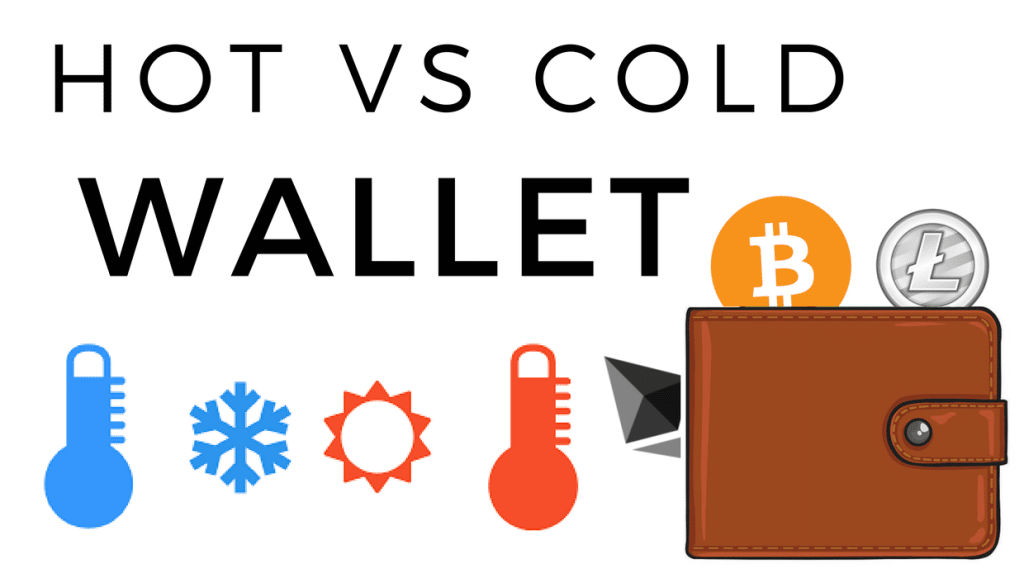Virtual currencies have given rise to various products among them the Cryptocurrency wallets. Selecting the right wallet is one of the greatest challenges that many Crypto traders face. This guide will allow you to learn everything you need to know about Cryptocurrency wallets.

What’s Crypto Wallet?
A Cryptocurrency wallet is software designed to store your coins. Whereas a physical wallet enables you to store physical fiat currencies, a digital wallet stores your private and public keys, allowing you to transfer and receive Cryptocurrencies through blockchain and monitor your balance.

How Digital Wallets Work
Cryptocurrencies are non-existence in physical form and are not stored in a single location. Instead, only the transaction records kept on blockchain networks remain as proof of their existence. Your private and public keys in a Cryptocurrency wallet are similar to your PIN and your bank account respectively. A Cryptocurrency wallet gives you control of your coins.
Sending a Cryptocurrency means sending its VALUE as a transaction. When you send a coin to someone, their private keys must match the public address you sent the coins to be able to spend them.
The same way you need a PIN to access your funds in your bank account, the same way you need the private keys to access your Cryptocurrencies. Anyone who gets hold of your private keys gains control over your altcoins. Consequently, you should ensure your private keys are not accessible to any other person. If you fail to recover your lost private keys, you’d also lose your funds. Always ensure you have their backup.
Although Cryptocurrency exchanges provide their users with exchange-hosted wallets, it’s not a good idea to rely on them to store your coins as you don’t have control over your private and public keys. As third-party service providers, they may shut down or get hacked leading to the loss of your coins. Besides, one must have a private wallet to participate in ICOs.
Cryptocurrency wallets are quite different from the regular e-wallets. Due to the complexity of the blockchain system, selecting the right wallet requires effort and research. Let’s discuss the different types of digital wallets that you could use to securely store your Litecoin, Ethereum, Bitcoin, or any other Crypto.
Types Of Cryptocurrency Wallet
The three main categories of Cryptocurrency wallets are paper, software, and hardware.

Hardware Wallets
Hardware wallets store private keys on a device, mainly USB drive. Most of these wallets are compatible with various web interfaces. These wallets are secure as they can store private keys offline. You only need to plug them into a device that is internet enabled to send or receive different Cryptocurrencies after authorizing yourself. These wallets are very expensive.

Software Wallets
Online: Online wallets are run on the cloud. This means you can access your funds wherever you are as long as there’s an internet connection. They are therefore more convenient than desktop wallets. However, given that your private keys are controlled by third parties and stored online, they are vulnerable to hacking and theft.
Desktop: Desktop wallets are downloaded and installed on laptops or PCs. These wallets are considered more secure than mobile and online wallets as they are safe when not connected to the internet. However, given that they are only accessible from the machine they are installed, it means one cannot use his/her coins when not around. Furthermore, you may lose your coins if the machine is attacked by a virus or hacked.
Mobile: Mobile wallets are downloaded and installed in mobile devices. Although they are not as secure as desktop wallets, they beat online wallets. They are popular because they are simple to use and can be used almost everywhere. However, you may lose your coins if your phone is lost, encounters a security breach, or breaks down.

Paper Wallets
Physical wallets are regarded as the safest way to store Cryptocurrencies. In this type of wallet, your generated private and public keys are contained in a physical copy or printed on a piece of paper. You can scan the QR code on the paper wallet or enter your private keys when you want to send or withdraw your funds.

Comparing Cold And Hot Wallets
Whereas hot wallets are connected to the internet, cold wallets are not. Online and desktop wallets are examples of hot wallets. On the other hand, cold wallets include the likes of hardware devices and paper wallets.
Cold wallets are considered more secure because there is no way a hacker could access the funds. Besides, such wallets are known for storing large amounts of virtual currency. Therefore, you don’t have to worry about where you’ll store all your key data.
However, cold wallets are slow and inconvenient to deal with. Given that they are not connected to the internet, it’s quite time-consuming to access them, especially when in a hurry. Moreover, to bring your private keys back online, you have to find them in the offline storage. However, these challenges cannot compare to the benefits that the wallets bring.
Hot wallets are very convenient to deal with as no time is wasted in getting the private keys. Furthermore, you can use various devices (e.g. phone, tablet, or desktop) to access them. However, since they exist online, they are vulnerable to cyber-attacks.
To ensure your coins are stored safely but accessible at the same time, it’s advisable to adopt a mix of hot and cold wallets. Since cold wallets are more secure, keep most of your Cryptos there. You should also keep a few coins in a hot wallet for regular uses.